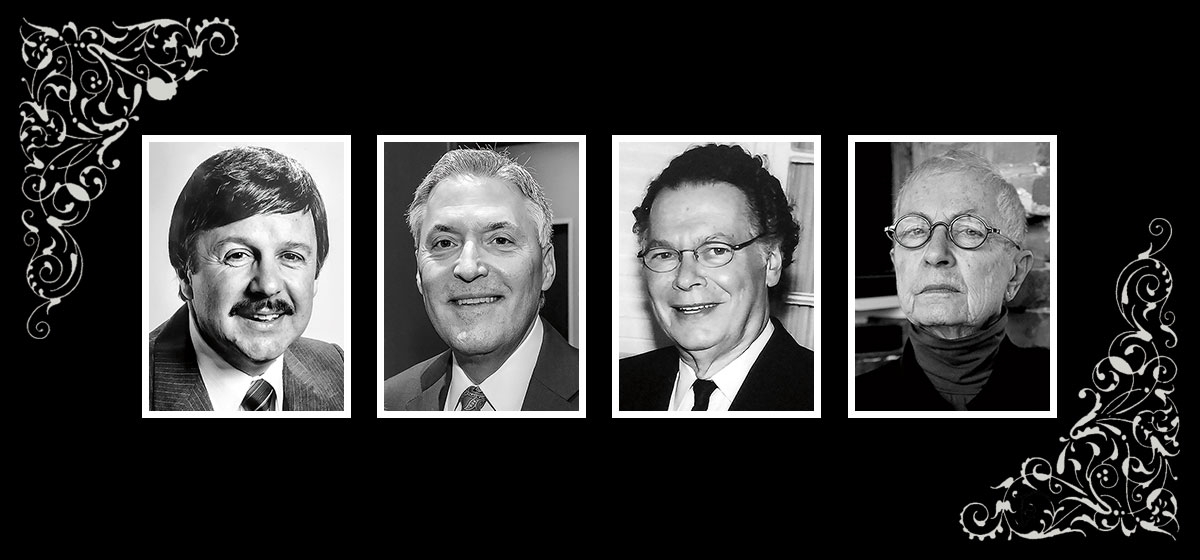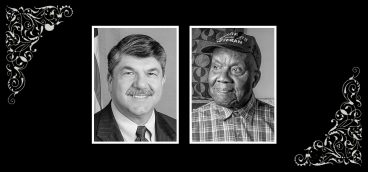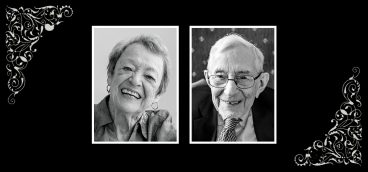Montgomery, Macino, Vento, Capretto, Marcu, Widdoes, Luderowski

Ruth Mitchell Montgomery, 101: Five years after she and her husband moved to Pittsburgh for a job with the University of Pittsburgh in 1956, Montgomery started the effort to create the Pittsburgh Chamber Music Society (now Chamber Music Pittsburgh), attracting the philanthropic support to make the dream a reality. For many years she ran the fledgling organization as a volunteer, organizing its records and preparing it for the successful future she envisioned.
Richard L. “Dick” Macino, 83: Macino was a gregarious man whose friendly personality and willingness to lend a hand to any number of initiatives always seemed to make life a little better for those with whom he came in contact. He spent 30 years with The Pittsburgh Press and Post-Gazette as public service director, overseeing efforts to raise millions in donations to Children’s Hospital through the Press Old News Boys Fund and directing the Western Pennsylvania Spelling Bee from 1967 to 1998, among many other initiatives.
Albert Vento, 89: The longtime East Liberty pizza shop proprietor reached fame in 1972 when he and a friend created what became Franco’s Italian Army, an attempt to rally fan support by attaching themselves to Steelers running back Franco Harris and by bringing sausage, wine and cheese into football games—home or away—dressed in army helmets and waving Italian flags. The shtick worked and the Army—whose most famous member was Frank Sinatra—captured the limelight just as the Steelers began their ascent, beginning with the Immaculate Reception.
Dr. Neil Capretto, 62: Dr. Capretto was a psychiatrist who was mentored by Dr. Abraham Twerski, the founder of Gateway Rehabilitation Institute. Capretto spent 30 years at Gateway, becoming its medical director and a major national force in the treatment of addiction and in the vanguard of the opioid epidemic. He was known for his determination and kindness in helping countless people with addiction problems.
Mihai “Mike” Marcu, 81: Born in Bucharest, Romania, his family escaped that country when Marcu was 2, and after living in various places in Europe, he reached the United States at age 17 and began pursuing his dream of becoming an architect. Marcu ultimately became president and CEO of Ingham, Kaffka and Marcu (later IKM), and during his tenure the firm and its team of 50 designed such local landmarks as the Hillman Cancer Center, the ice rink and fountain at PPG Place and the McGowan Institute and was involved in the conversion of the Allegheny County Jail to Family Courts as well as renovations and additions to the Phipps Conservatory.
Barbara Widdoes, 89: Babs Widdoes was a leading Pittsburgh arts advocate, and a driving force behind the creation of the Three Rivers Arts Festival. She co-chaired the initial years of the Festival and was its executive director from 1971-78, building the concept into a successful Pittsburgh event. She served on numerous boards including the Pittsburgh Playhouse, Pittsburgh Public Theater and the Women’s Committee of the Carnegie Museum of Art, which launched the Three Rivers Arts Festival.
Barbara Luderowski, 88: The founder of Pittsburgh’s famed Mattress Factory, Luderowski brought a vision, a can-do spirit and an artistic unorthodoxy to Pittsburgh that helped transform the Mexican War Streets as well as the Pittsburgh arts scene. She turned a run-down industrial building into the Mattress Factory, one of the jewels of Pittsburgh’s art scene, a place where the nascent field of installation art gained a major toehold as it became one of the country’s most vibrant art forms of the last 40 years, using three-dimensionality and often light to usher in a new kind of art. With her short-cropped silver hair, glasses and typically black attire, she cut a singular figure in Pittsburgh and succeeded in her initial goal to create an intellectual community of people who would gather to do artwork.






